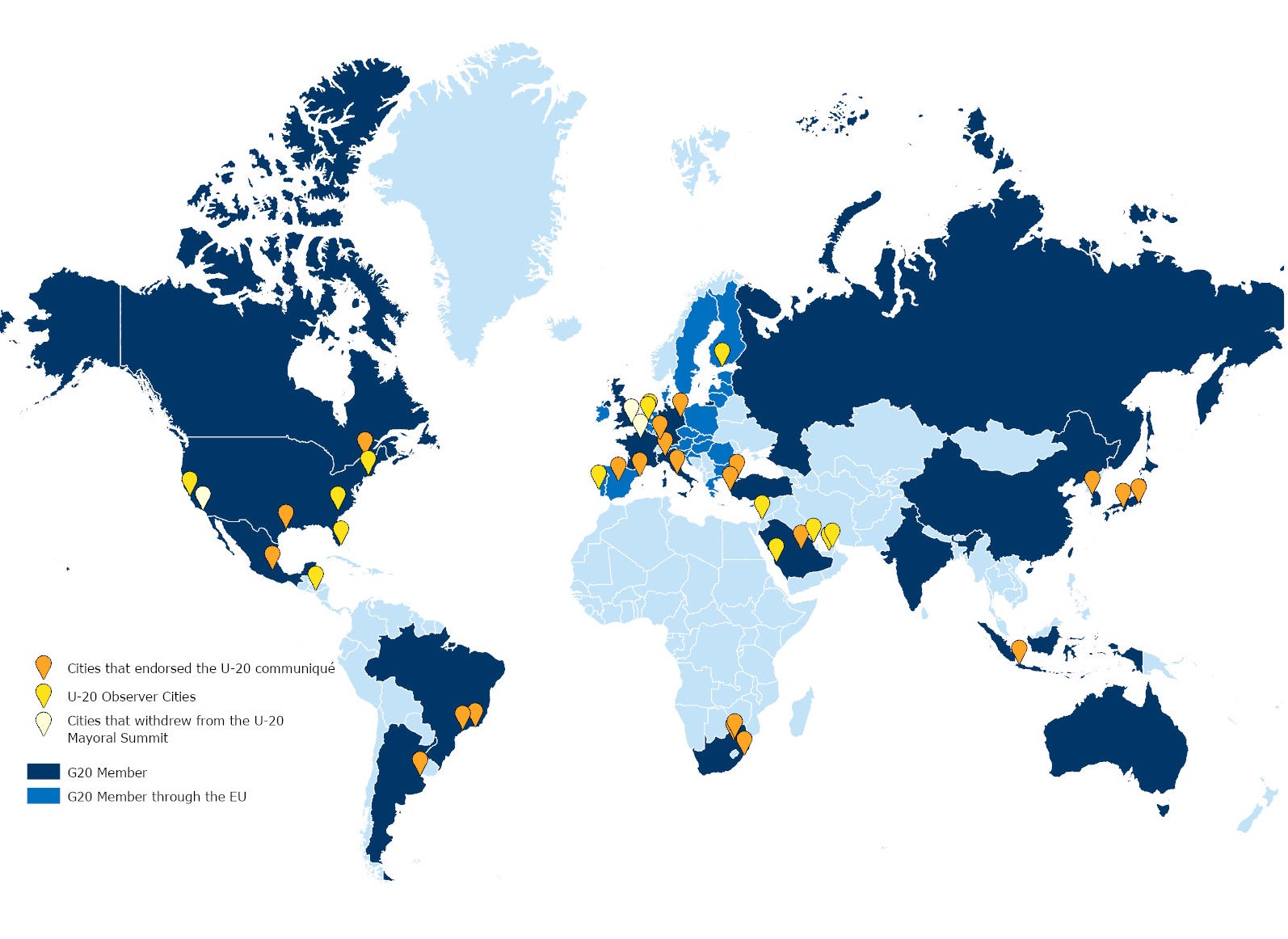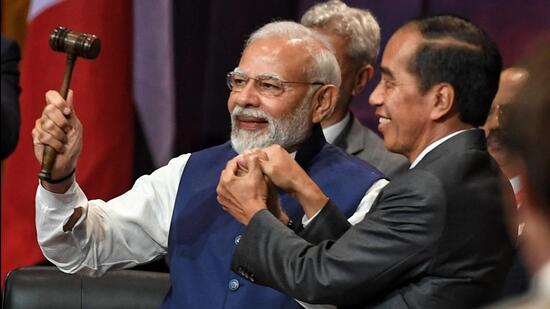
Currently, 50% of the world’s population resides in urban areas; by 2050, this percentage is expected to rise to 6 billion. In spite of this, cities nevertheless struggle to meet the demands of this fast growing population. What promises can India’s presidency hold for the 50% of people who live in cities as a catalyst for global change?
Background
- India assumed the G20 presidency on December 1. The guiding principle of “Vasudhaiva Kutumbakam,” best summed up by the tagline “One Earth, One Family, One Future,” will serve as its guide.
- To achieve the objectives of the 2030 Agenda, the G20’s Sustainable Development agenda aligns itself with sustainable actions.
Urban 20 (U20)
- An urban diplomacy project within the G20 ecosystem: In the G20 ecosystem, the “Urban 20” (U20) was introduced in December 2017. The U20 forum was established as one of the G20’s official Engagement Groups with the purpose of bringing up important urban concerns for G20 cities as a group during G20 negotiations.
- The G20 and non-G20 cities are increasingly important as a nation’s engines of innovation, economic growth, and productivity, according to the U20’s City Sherpas.
- Focus on climate change and sustainable development: U20 places a particular emphasis on these topics in relation to the Sustainable Development Goals, along with socioeconomic concerns.
- Mostly remained a platform of advice: Despite the U20’s concerted efforts to operate independently of the G20, the lack of a written constitution, official procedures, or agreement has prevented the U20 from properly addressing the aspirations and concerns of cities. Unable to actively affect urban planning or carry out policy measures, U20 appears to have primarily remained a venue for expression and making recommendations.
- India now has the unique chance to establish and implement specific U20 aims to connect with the more general objectives of one of the most important international forums within this context.

U20 2023: a unique opportunity to India
- India’s U20 potential may seek to make investments and engage in meaningful policymaking that will help the world achieve its 2030 Agenda.
- India can create a new, balanced model by thoughtfully allocating urban resources and encouraging sustainable habits. While studying some of the healthiest cities’ best practises,
Actions at U20
- Urban amenities must take into account the improvement of overall quality of life and social-emotional well-being in the post-Covid world. In a post-pandemic world, U20 2023 can prioritise the role of urban mental health to raise awareness of its bearing as a result of an overwhelming built environment.
- U20 2023 can provide a framework for efficient data collecting, analysis, monitoring, and reporting for timely assessment or urban planning to match with G20 and national objectives, with a focus on efficient data and policies. India needs to prioritise policies that enable data governance and effective data utilisation.
- Increasing the effectiveness of digital services and closing the digital divide gap: Only 61% of urban Indians are digitally literate, indicating a pervasive lack of knowledge of the government’s e-services. In addition, gender biases in technology and digital skills contribute to a widening gender gap in access to digital services. In order to support research and investment in closing these gaps, new legislative frameworks are required.
- Gender-inclusive planning to create equitable cities: The United Nations Agenda 2023 might call for international partnerships to create equitable cities by having discussions about gender-inclusive planning. Not only will this help women and children, but it will also ensure that LGBTQ+ people and other marginalised genders are represented in the urban planning process.
- Prioritizing capacity building and training for city planners: It’s also crucial to stress the value of educating planners and other public servants on the varied impacts and sensibilities of urban development plans. India can support international cooperation in discussions about greater funding for healthcare services in cities.
- Increasing direct investment in sectors like sustainable energy and mobility transition: India may increase direct investment while carrying out its obligations under the Paris Agreement, the New Urban Agenda, and the 2030 Agenda. A global area of attention for policymakers, for instance, is addressing the dangers of urban flooding in a changing climate.
- Investing in high-quality education and skill development is essential to being better prepared for the future of work and employment as cities continue to grow. The development of greater entrepreneurship skills and training must be supported by policies in all fields. For instance, while the PM Employment Generation Programme and other Credit Support Schemes assist MSMEs in educating youth and creating jobs, their efficacy and reach are still unknown. On the other hand, the growing gig economy trend necessitates the development of creative policy solutions to support the aspirations of urban young.
- The need of local-regional involvement for the fusion of viewpoints at the national and sub-national government bodies must be emphasised, and U20 2023 can do this most effectively. Urban Local Bodies (ULBs) can be strengthened more to support the development of equitable infrastructure, inclusive economic growth, and basic infrastructure requirements.
Conclusion
India can contribute to the formation of a global consensus for revitalised urban vitality by examining the connections between the shared concerns surrounding urban planning.
